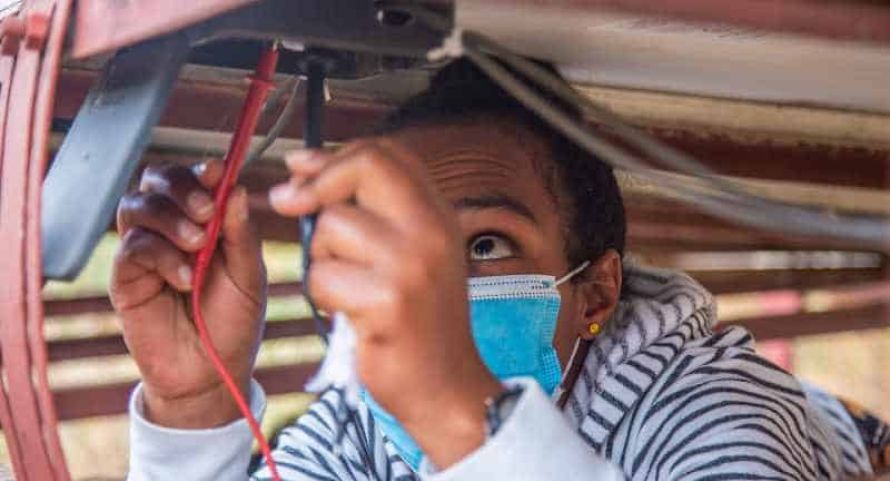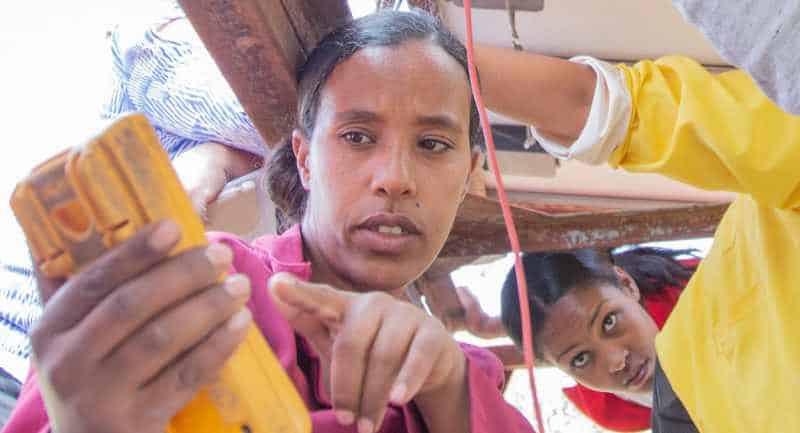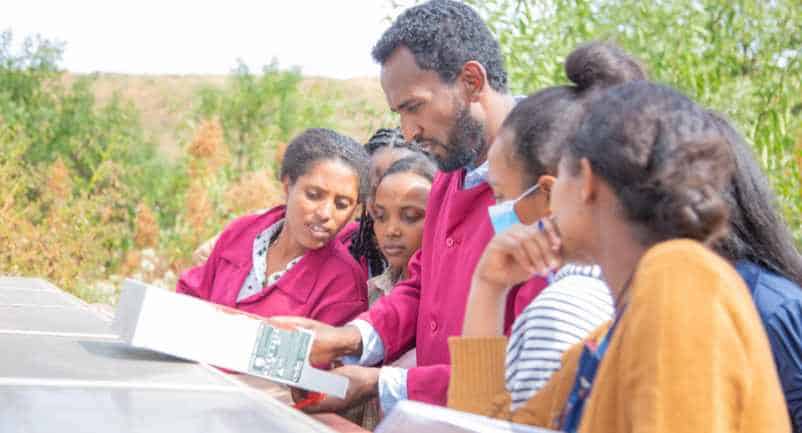Training for women engineers and technicians

In the development and dissemination of renewable energies, female engineers and technicians are still the exception. Yet, they could play an important role in the dissemination of these renewable energy solutions. That’s why Green People´s Energy Ethiopia (GBE) has trained 33 female technicians and engineers from various government institutions. Demand has been high, and feedback enthusiastic.
“It is vital to train women engineers in all matters related to PV solar systems. Given their understanding of the socio-economic conditions in rural communities, women are posed to best promote the dissemination and application of renewable energy – such as Solar PV technologies, that positively impact rural women in particular”, said Berhanu Woldu, CEO of the Rural Energy Technology Development and Promotion Division of Ethiopia’s Federal Ministry of Water and Energy (MoWE).

There is still a large gender gap in renewable energy – and not just in Ethiopia. As a result, male engineers are given more credit – and lead or oversee projects – even though some female engineers would be better trained and more suited for the job.
“We women in Ethiopia still have a long way to go. Many of us have the misconception that we are less capable, and even when we go into the field for maintenance work, we take a supporting role rather than a leading one,” said Metasebya Worku, energy expert and training facilitator.
To address the gender gap and related stereotypes, the German and Ethiopian governments together conducted solar-photovoltaic training for 33 female engineers and technicians from various government institutions and the private sector. Implemented by the Deutsche Gesellschaft für Internationale Zusammenarbeit (GIZ), the Green People’s Energy programme in Ethiopia works in partnership with the Ethiopian Federal Ministry of Water and Energy (MoWE) to offer training and further strengthening of capacities.

After a bit of theory on the structure and design of solar PV systems, participants pulled out their screwdrivers and voltmeters and familiarized themselves with various photovoltaic devices. “The focus on the practical side of installing and maintaining a PV system really motivated me,” summed up engineer Sayo Jemal.
The feedback of participants and partnering institutions on this training was enthusiastic and hints that more of such trainings will be needed in the future. The credo of the participants: “This support is an important contribution to bridging the gender gap, and I hope that more trainings of this kind will take place,” said Frehiwot Zemedkun, engineer and participant in the training.





